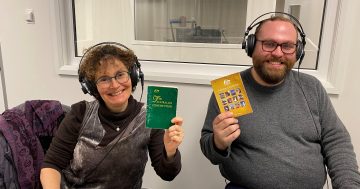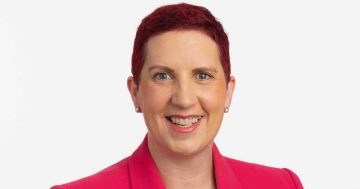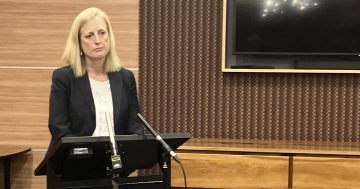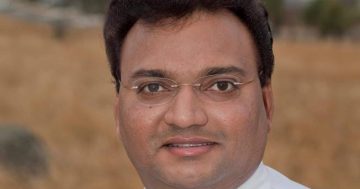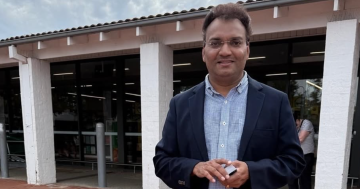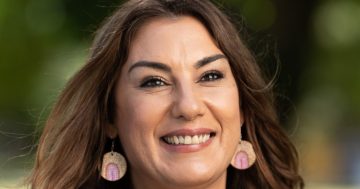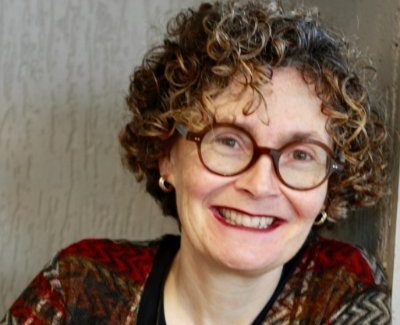
Kim Rubenstein. Photo: Supplied.
It may be the biggest mountain to climb in ACT politics, but Kim Rubenstein reckons she has the best chance in decades to topple Senator Zed Seselja at the next federal election.
The legal academic has thrown her hat in the ring as an independent, gathering 1700 supporters in her newly-formed Kim4CBR party. Those numbers will put her above the line on the ballot and she believes the growing momentum for independent candidates gives her more than a fighting chance of victory.
Kim is a nationally recognised legal scholar, legal practitioner, professor, Fellow of the Australian Academy of Law and Fellow of the Academy of Social Sciences. She is currently at the 5050 by 2030 foundation at the University of Canberra as its co-director, and academic after a lengthy stint in the ANU’s College of Law.
A national expert on citizenship law, she regularly acts on a pro bono basis before the High Court and has been a regular media commentator.
“It is a big call”, she says of the decision to run.
“When I started my career, academic work was attractive because I could do it without having to sacrifice family. Balancing that was important to me, but I always wanted to contribute.”
Her children, now in their early 20’s, are enthusiastic enough about the change to put their own studies on hold for her campaign, and Kim says the last 18 months of concern over gender equity in particular have amplified the need to take action.
“It’s made me think I’ve got to do something in a more direct way. I’ve been doing a lot from the outside – it’s time to come to the inside,” she says.
Kim believes there’s a rising tide of independents in both the House of Representatives and the Senate, pointing to the likes of Helen Haynes, Zali Steggall and Rex Patrick. She thinks greater numbers of non-aligned or independent parliamentarians can also make the system work better by calling MPs and Senators to account outside party lines.
Her concerns include gender equity, constitutional change, indigenous recognition, a republic and citizenship – all, she thinks, are “really pressing issues” that are unresolved due to the pressures of the party system. She’s also deeply concerned about climate change and describes herself as “a candidate of integrity, committed to representing Canberra”.
She’ll campaign for the Electoral Act to be amended, increasing the ACT’s senators to four* in line with the population growth and says if elected, she’ll also be standing up for the public service against successive cuts to investment and financial support.
But where will the votes come from? How will issues like this move the needle in a jurisdiction where there’s almost two quotas guaranteed for the ALP and a smaller but still solid Liberal vote at each election?
Kim thinks she has a chance with disaffected “small l” Liberals and Labor voters who are frustrated by party loyalties.
“No matter how wonderful people think Zed and Katy are, they vote according to party lines not what’s in the best interests of Canberra,” she said.
“With three seats in the House of Representatives, the Canberra community of thoughtful individuals can vote as they normally would in the lower house. But they could also see the Senate vote as something separate, to send a message to whatever party they support, someone who is more aligned with their values.”
The Voices For Australia movement has provided advice and encouragement but Kim says they’re not formally a part of her campaign. Moral support has come from conversations with sitting independents and some meaningful donations have come in through the Kim 4CBR website.
Zoom is facilitating meetings with the community during lockdown and Kim is also gathering volunteers.
“I’m a dedicated family person, truly engaged with community participation”, she said.
“I have very strong values about family, the importance of the individual and protecting and ensuring inclusive strong community.
“I think our campaign will resonate with Canberrans who want a better and more secure environment. It’s not about exclusion but looking after everyone at the same time – those things are not mutually exclusive.
“We don’t have to label people, we can connect on the fundamental values of human dignity, integrity and a responsiveness to people’s needs.”
*Corrected












